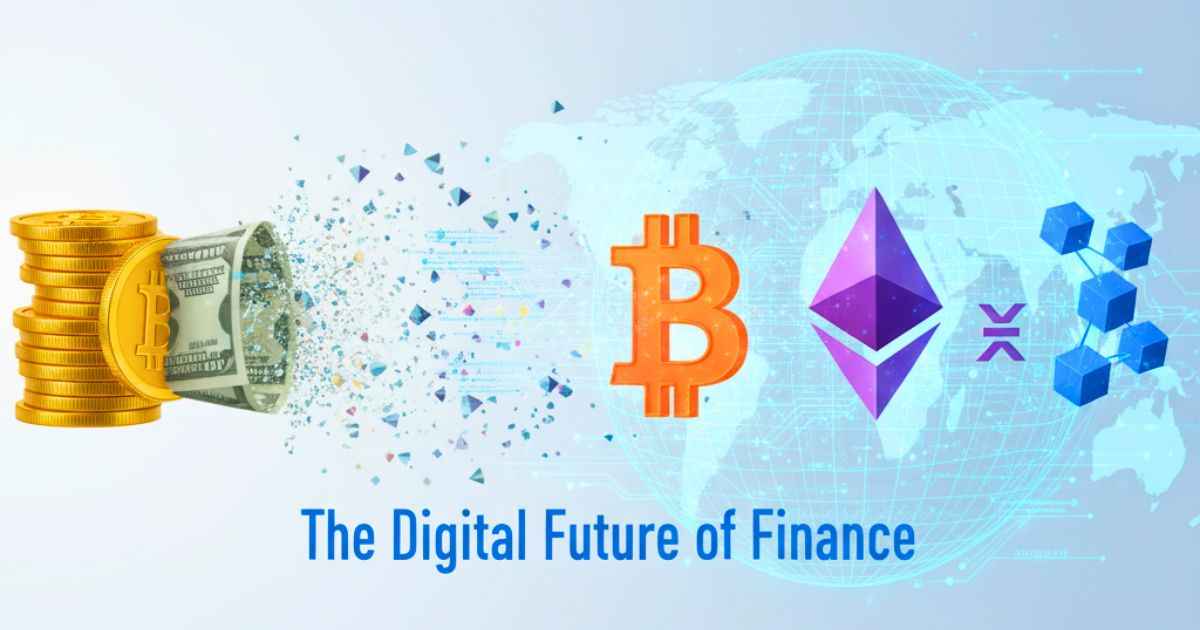Money has changed a lot over time. Long ago, people traded goods, but now we use online money called cryptocurrencies. These are digital coins that live on the internet. They are not made of paper or metal. Instead, they work through special computer codes that keep them safe and honest.
Digital coins like Bitcoin and Ethereum have changed how people around the world move money. Anyone can send or receive them without banks or borders. That means you can pay someone in another country in seconds. It also helps people who do not have bank accounts join the global economy.
Cryptocurrencies are reshaping how people think about money and freedom. They let users control their own funds without asking permission from banks or governments. As the world becomes more digital, understanding how this new money works is becoming as important as knowing how to use the internet itself. The more you learn about crypto today, the better prepared you’ll be for the future.
The Evolution of Digital Money
Money has always been about trust. Long ago, people used shells and gold to trade. Later, banks made paper money so people could carry value easily. Then came credit cards, online payments, and mobile wallets. Each step made money move faster and easier.
After the 2008 financial crisis, trust in banks dropped. People wanted a fairer system that didn’t depend on one big authority. That’s when Bitcoin was created — the first digital currency that runs without a central bank. It used a new idea called blockchain, which keeps records on many computers at once so no one can cheat.
A few years later, Ethereum added more power to this system. It allowed users to create smart contracts — small programs that run automatically when rules are met. These contracts made it possible to build apps without a middleman. From online games to digital art, Ethereum opened the door to a new internet world.
The journey from cash to crypto shows how humans keep finding new ways to make money smarter and safer.
How Cryptocurrencies Work
Imagine a big notebook that everyone can see but no one can erase — that’s what a blockchain is. It keeps a list of all transactions, like who sent money to whom. This notebook is stored on many computers, called nodes, around the world. Because many people have the same copy, it’s almost impossible to fake or hack.
When someone sends cryptocurrencies, miners check the transaction. They solve math puzzles to make sure it’s real, then add it to the blockchain. Once it’s added, it stays there forever. Each person has two keys: a public key, which is like your address, and a private key, which is your secret password. Only the private key owner can send the coins.
In banks, you need approval to move money, and transfers can take days. But in crypto, transactions happen anytime — even at night or on weekends. It’s faster, cheaper, and doesn’t need permission.
By removing middlemen and using smart code, crypto lets people control their money directly, making finance more open for everyone.
The Importance of Bitcoin
Bitcoin is often called “digital gold.” Like gold, it has value because people trust it and it cannot be made in unlimited amounts. Only 21 million coins will ever exist. This limited supply makes it special and keeps its worth strong over time.
Many people use Bitcoin as a way to save money for the future. It is not controlled by any bank or country, so no one can print more or take it away. That gives investors and users more control over their wealth.
As the first and most famous digital coin, Bitcoin built trust in cryptocurrencies. It showed the world that digital money could work safely using math and code instead of banks. When the price of Bitcoin changes, it often affects the whole market. Other coins rise or fall with it because it leads the way.
Many experts highlight Bitcoin’s role as the foundation of all cryptocurrencies. It started a global movement toward open and borderless money. Today, millions of people hold or trade Bitcoin, not just to earn profit, but to be part of a new financial system built on freedom and technology.
Ethereum and the Future of Blockchain
Ethereum is more than just another cryptocurrency. It’s a whole platform where people can build apps that run without middlemen. These apps, called decentralized applications or DApps, work on a system of smart contracts — small bits of code that act like digital agreements.
Smart contracts run automatically once their rules are met. For example, a farmer could sell crops online and get paid the instant they’re delivered, without needing a bank or lawyer. This idea opened doors to DeFi (Decentralized Finance), where people lend, borrow, or earn interest using only crypto wallets.
Ethereum also powers new digital tools like NFTs, DAOs, and Web3 apps. Artists sell art as NFTs, communities vote with tokens, and websites run without one company in charge. These ideas are changing how the internet works.
Over time, Ethereum has improved too. It now uses Proof-of-Stake, a cleaner system that saves energy. Developers are also making it faster and easier to use. With every upgrade, Ethereum gets closer to building a fairer digital world where anyone can join, create, and earn online.
Benefits and Challenges of Cryptocurrencies
Using cryptocurrencies comes with both good sides and hard parts.
Benefits
- Freedom and Control: People can send or receive money anytime without banks. It gives everyone financial freedom.
- Fast and Low-Cost Payments: Sending money across countries takes minutes, not days, and costs much less.
- Transparency and Safety: Every transaction is recorded on the blockchain, so it’s open and hard to fake.
Challenges
- Price Changes: Crypto prices go up and down quickly. This makes it risky for short-term use.
- Scams and Fraud: Because crypto is online and anonymous, bad actors sometimes try to trick people.
- Energy Use: Some coins, like Bitcoin, need a lot of electricity for mining, which raises environmental concerns.
Even with these issues, crypto keeps growing. More companies accept it for payments, and more people learn how to use it safely. The key is balance — enjoying its freedom and speed while staying careful and informed. With time and better rules, the world of Ethereum and Bitcoin may become safer, smarter, and more trusted.
The Future of Cryptocurrencies
The world of cryptocurrencies is growing fast, and even big governments and banks are starting to pay attention. Some countries are testing new forms of digital money called Central Bank Digital Currencies (CBDCs). These are like crypto but are made and managed by national banks. They help people send money safely while still following local rules.
Big companies and financial institutions are also adding Bitcoin and Ethereum to their plans. Many stores now accept crypto payments, and some banks even allow customers to buy or store coins directly through their accounts. This shows that digital money is moving from a small idea to a trusted part of global finance.
Governments are also creating new rules to make the crypto world safer. Better laws help protect users from scams and make businesses feel more confident when using digital assets. As the industry grows, more people are learning how to invest wisely and use crypto for real purposes, not just trading.
Experts believe that in the future, Ethereum and Bitcoin could work side by side with traditional banks. Imagine paying bills, getting loans, or buying goods using both crypto and regular money in one simple app. The more people understand how crypto works, the more it becomes a normal part of everyday life. The future of money is digital, smart, and open to everyone.
Conclusion
Cryptocurrencies like Bitcoin and Ethereum are changing the way people think about money. What started as a new kind of digital cash has now become a global system that gives people more control over their finances. Around the world, governments, banks, and everyday users are learning how to use this new technology safely and wisely.
The future looks bright as more people understand and trust crypto. With better rules, cleaner technology, and smarter systems, cryptocurrencies could work side by side with traditional money. One day, sending Bitcoin or using Ethereum apps might be as common as using a bank card or phone payment.
As the world becomes more digital, learning about crypto is no longer just for experts — it’s for everyone. The more we understand it, the more we can use it to build a fair, open, and connected financial future for all.
Explore More At Freakbob time.

Joseph Quinn is a writer and digital creator best known as the founder of FreakBobTime. With years of blogging experience, he blends technology, culture, and internet humor into unique stories and creative experiments. Through his work, Joseph brings back the playful, weird side of the web while making content that connects with readers worldwide.




